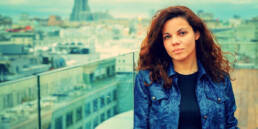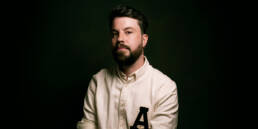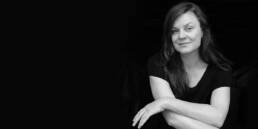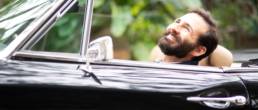
Broadway veteran Erik Liberman, noted for his impressive career on Broadway and off, as well as on the small screen (‘War Paint’, ‘The Band’s Visit’, ‘LoveMusik’, ‘Modern Family’, ‘Vinyl’), talked with The Cinematic Journal about the way he approaches each role, how he deals with stage fright and some of his most memorable roles in productions such as ‘Fiddler on the Roof’, Alan Menken and Stephen Schwartz’s ‘The Hunchback of Notre Dame’, and the musical finale of the hit TV series ‘Transparent’.
The actor, director, author, and educator has been keeping busy during the lockdown, having decided to give something back to the community during these challenging times. Together with producer Marissa Lynn Daniel, he launched Bridge to Broadway, an online training platform that connects young industry professionals with a star-studded line-up of seasoned mentors.
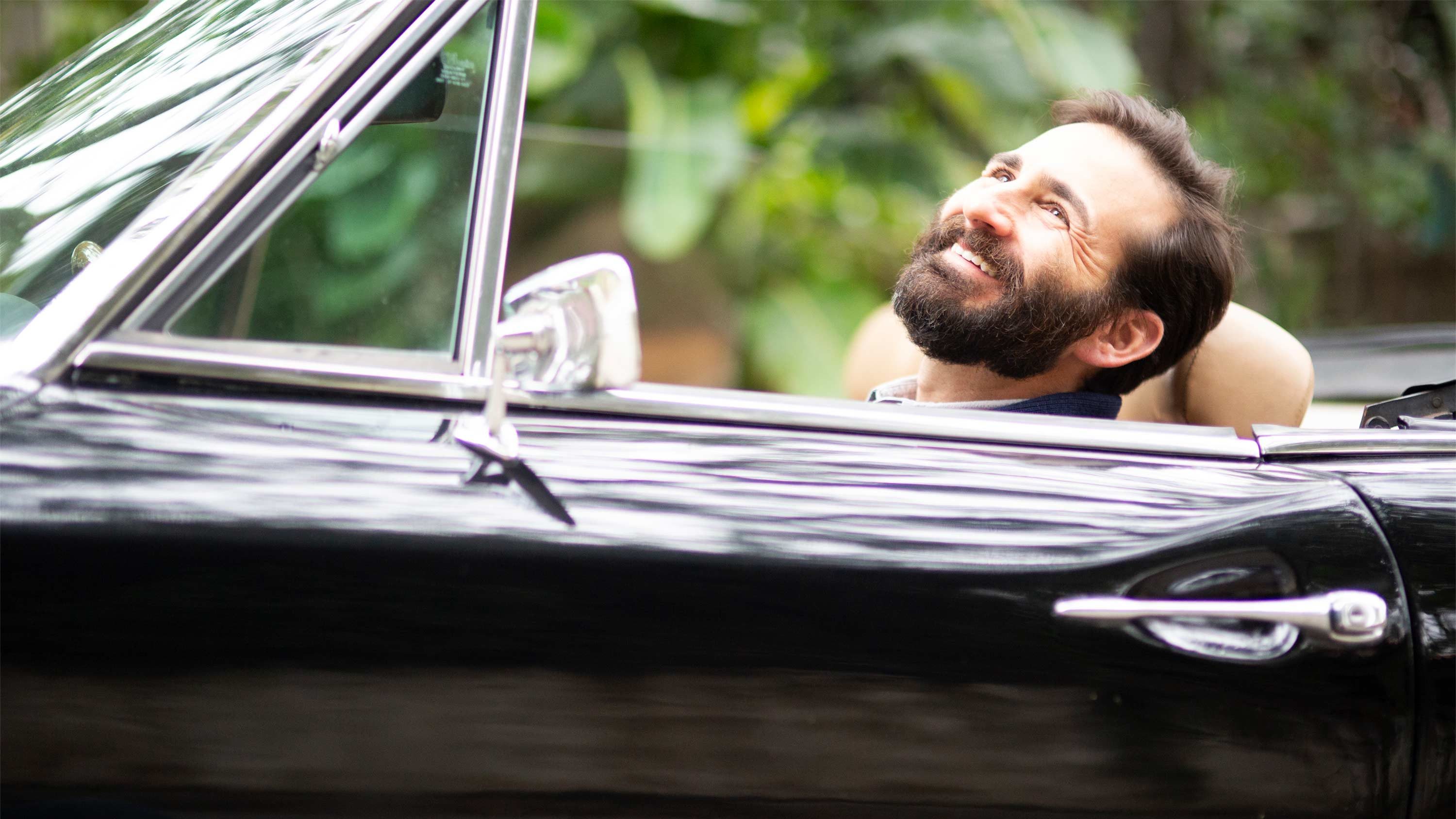 ERIK LIBERMAN. PHOTO BY MARK ODGERS
ERIK LIBERMAN. PHOTO BY MARK ODGERS
Do you remember your first encounter with the performing arts, that precise moment when you thought, ‘I belong in this world’?
Two things come to mind. The first is that my mother, on my sixth or seventh birthday, took me to the Riverboat Playhouse where they performed children’s shows. That filled me with wonder and ignited my imagination.
Then there was a commercial for The Coconut Grove Children’s Theatre which featured a bunch of kids my age in costumes. I remember turning to my grandmother when she asked, ‘What do you want to be when you grow up?’ and I said, ‘In there!’ pointing to the television [laughs].
I remember calling the Children’s Theatre many times and when they picked up, I hung up because I was afraid. Finally, my father got me an audition through a friend of his who knew the Artistic Director, Corky Dozier, and I got in. It changed my life.
Before that, I typed a letter to the producers of ‘The Sunday Funnies Show’ because I wanted to read comics to kids on TV and ended up doing that… So it was very much a confluence of events at around five or six years old, I would say.
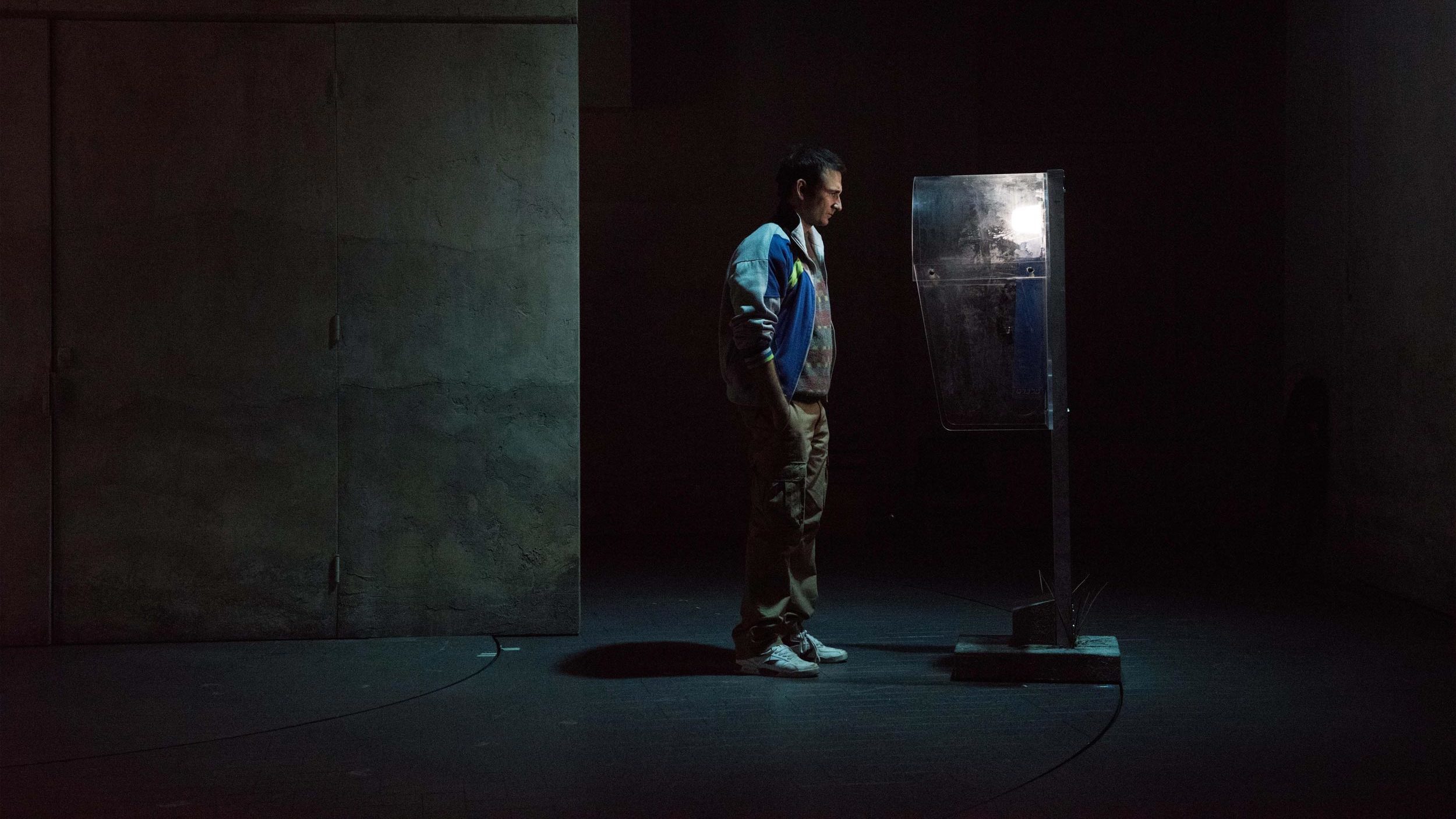 ERIK LIBERMAN IN ‘THE BAND’S VISIT’. PHOTO BY AHRON R. FOSTER
ERIK LIBERMAN IN ‘THE BAND’S VISIT’. PHOTO BY AHRON R. FOSTER
Did that period foreshadow the genres you’d end up gravitating towards?
I don’t think at five or six there is an awareness of ‘genre,’ per se. There’s just a question of wanting to be part of something larger than yourself and seeing if you have something to offer. It’s an investigative time.
When you are offered a role, which boxes does it need to tick in order for you to say, ‘This is for me’?
I would say that when a role coincides with my humanity in a way that will help me grow, I go for it. And hopefully, there are collaborators involved who have a commitment to cutting edge work and to telling a story that hasn’t been told before, at least not in the way they’re imagining it.
In terms of musicals, you’ve portrayed quite a few memorable roles in ‘War Paint,’ ‘The Band’s Visit,’ ‘The Hunchback of Notre Dame,’ and ‘Fiddler on the Roof,’ to name a few. How did you find the connection with them? Did you identify with any of those characters in real life?
All of them. If I can’t identify with a character, I can’t play it.
In the case of ‘The Band’s Visit,’ it was the character’s longing — reaching for something larger than himself — with which I connected. I think that’s an urge we all contain.
‘War Paint’ was tougher because the man I played was quite destructive. I had to work backwards from those behaviours, considering his early misfortunes and how those can colour the roads we take.
‘Fiddler on the Roof’ I avoided for a long time because it was a world my grandparents lived through which I wasn’t eager to revisit. Once I took the part, however, I felt the presence of my beloved grandfather every night, particularly during the exodus.
‘The Hunchback of Notre Dame’ — absolutely. That was a human who learned to entertain the masses in order to deal with the pain of being marginalized, as the Romani people were and continue to be.
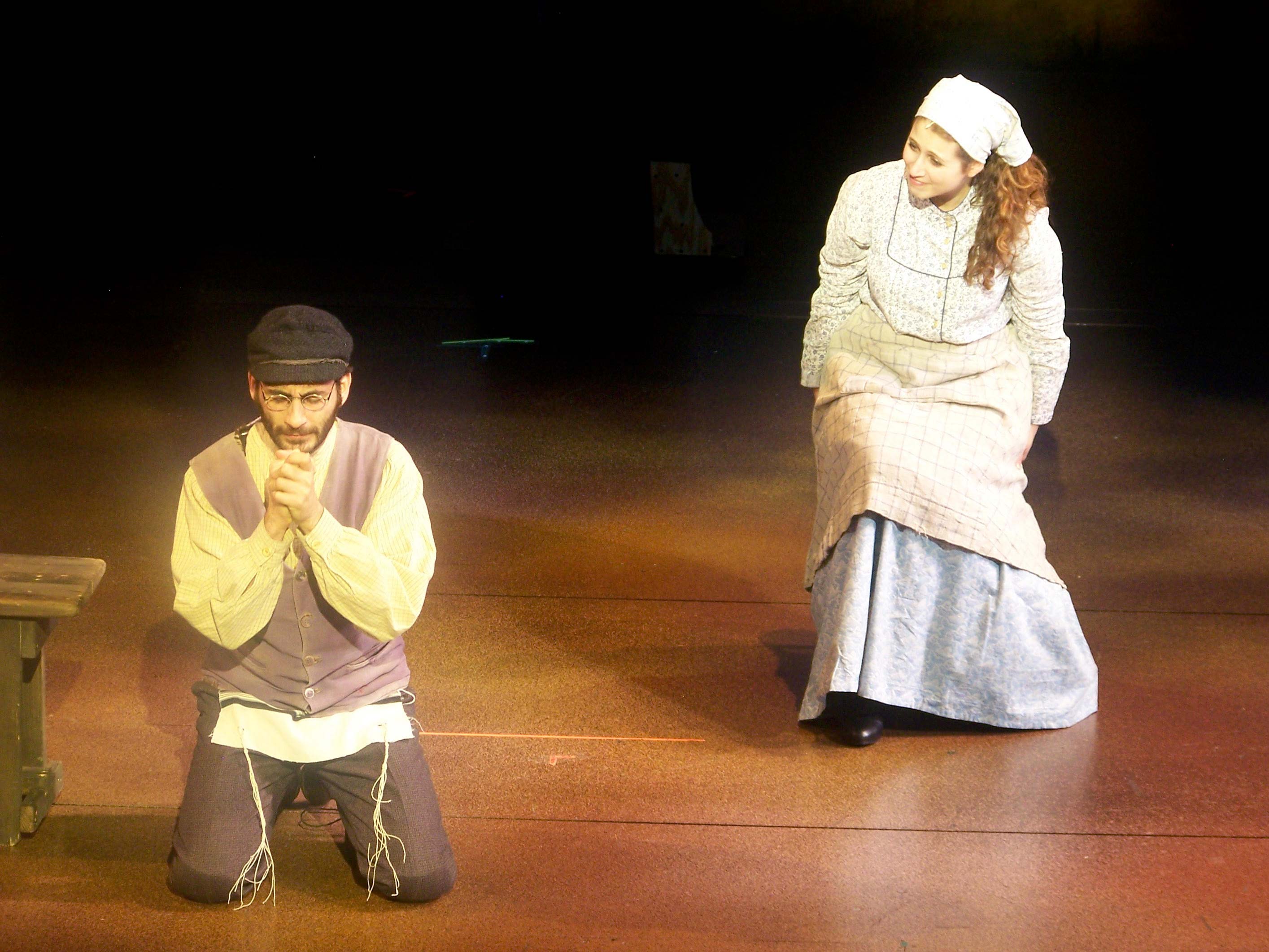 ERIK LIBERMAN AND RENA STROBER IN ‘FIDDLER ON THE ROOF’. PHOTO BY JOAN MARCUS
ERIK LIBERMAN AND RENA STROBER IN ‘FIDDLER ON THE ROOF’. PHOTO BY JOAN MARCUS
Going back to Fiddler, having eventually played in it, did the experience help you come to terms with your grandparents’ history?
Yes.
I feel that as actors, our job is to play characters as far from ourselves as possible in order to widen our purview of the human experience — so for a while, I avoided roles that were close to my history. But Fiddler forced me to embrace that history— and in fact I grew stronger for it.
Then again, you can’t help but feel embraced by such a brilliantly constructed show. We were held in the sturdy palms of Jerome Robbins, Jerry Bock, Sheldon Harnick, and Joseph Stein, three of whom I had the privilege of meeting.
Do you have a dream role that perhaps you are afraid of taking on?
Not afraid, no, because I think there’s universal design to which parts find us and when. But I do have a particular affinity for two characters: Georges Seurat in ‘Sunday in the Park with George’ and Shakespeare’s ‘Richard II.’
I’ve also written a lot lately which has been fun because as actors, we tend to look toward other creators to ascribe the secrets of our hearts and liberate us. At the moment, I am enjoying unlocking those doors myself.
How do you combat stage fright?
Before I go on stage, I summon everyone on whose shoulders I stand: my teachers, living and passed, my family, my role models. I thank them and say a blessing asking that everyone in the theatre be met with whatever it is they came to receive at that performance. When I feel ensconced in that matrix of appreciation, there’s less fear. Another means of combating fear is meditation — connecting with something larger than ourselves which transcends our individual concern as to whether or not people approve of us.
“The best thing we can do is gather the courage to step aside and be borrowed. That’s vulnerability.”
As a performer, how do you feel the ego and vulnerability intersect?
I think of the ego as this tender membrane designed to protect a finite instrument — the mind — from feeling obsolete in the face of the infinite. And what are things that render the mind obsolete? Love, nature and art, because we can’t quantify the magnitude of these phenomena.
For example, singing ‘Answer Me’ at the end of ‘The Band’s Visit’ was terrifying because it was everything that I am – my heart and soul laid bare. But once you hitch a ride on that material, something larger takes over and, much as our ego would like to take credit for it, we can’t. The best thing we can do is gather the courage to step aside and be borrowed. That’s vulnerability.
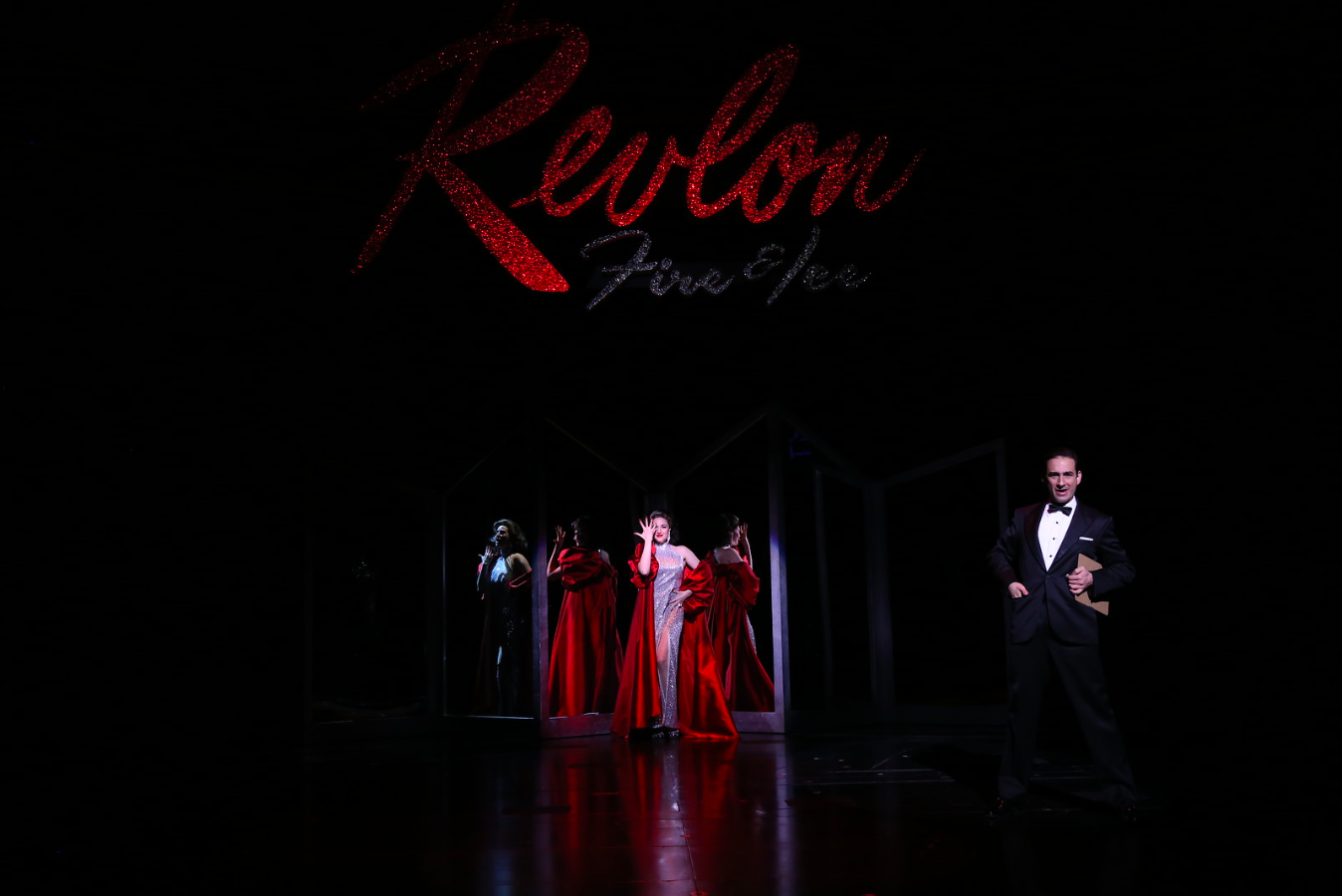 ERIK LIBERMAN IN ‘WAR PAINT’. PHOTO BY JOAN MARCUS
ERIK LIBERMAN IN ‘WAR PAINT’. PHOTO BY JOAN MARCUS
Do you find getting into character on stage similar or different to getting into character in front of the camera?
On stage, there’s more time for research and I love that — deep-diving into a character then testing that homework in rehearsal. And, in a few weeks’ time, we all test our work before audiences.
On television, it’s a faster process. The prep is compressed, but you’re ready because the fast-twitch muscles required for TV are borne of the marathon muscles developed onstage.
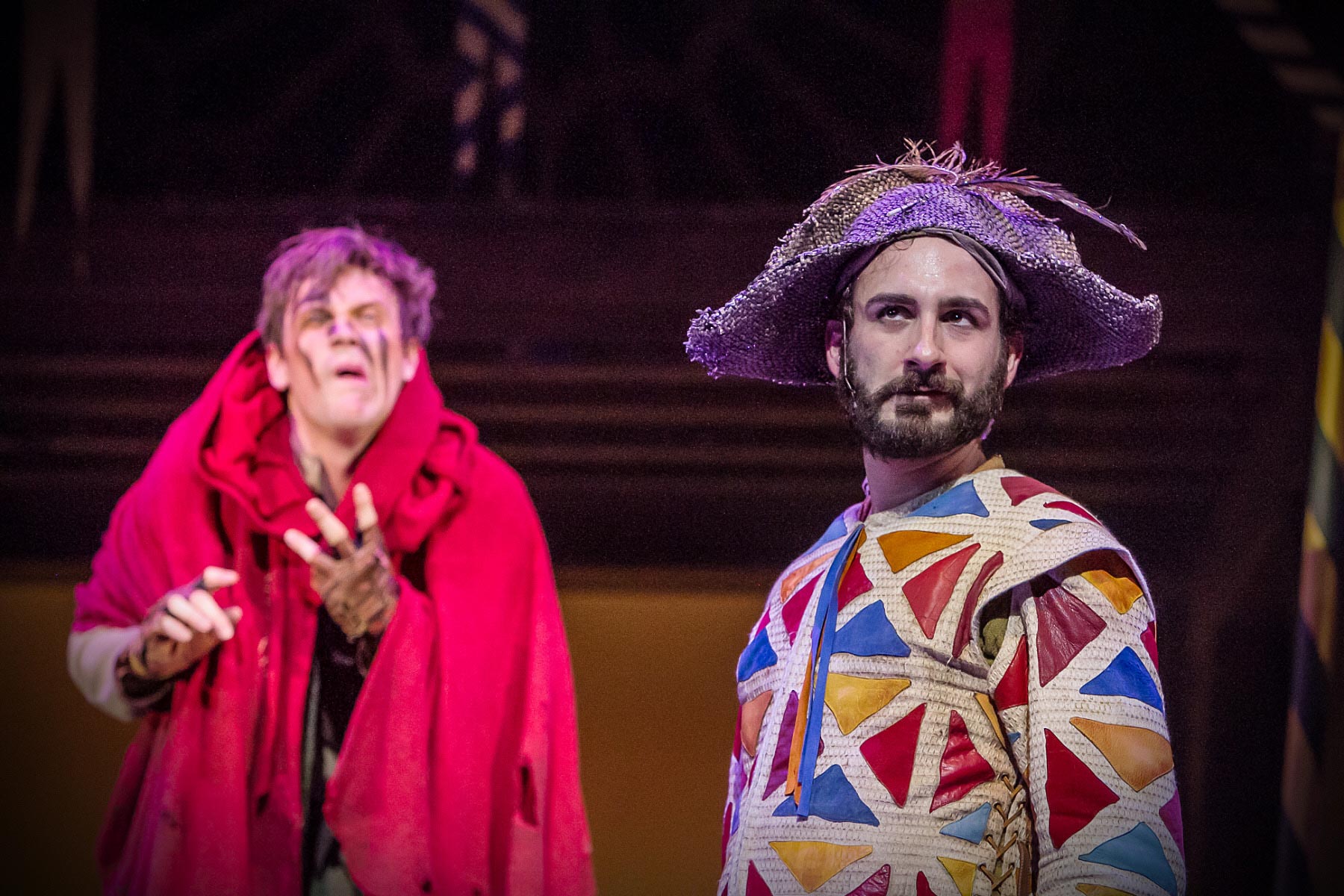 MICHAEL ARDEN AS QUASIMODO AND ERIK LIBERMAN AS CLOPIN TROUILLEFOU IN ‘THE HUNCHBACK OF NOTRE DAME’. PHOTO BY JERRY DALIA
MICHAEL ARDEN AS QUASIMODO AND ERIK LIBERMAN AS CLOPIN TROUILLEFOU IN ‘THE HUNCHBACK OF NOTRE DAME’. PHOTO BY JERRY DALIA
A little bird told me you love to sing. Having worked on ‘The Hunchback of Notre Dame,’ which features gorgeous music by Alan Menken and Stephen Schwartz, how was that experience for you from a singing perspective and do you have a favourite musical moment?
The majesty of that music washes over you in such an oceanic way, you can’t not be affected by Alan and Stephen’s exquisite creation!
That said, it was a tricky show for me because that’s when I was diagnosed with a hearing disorder — which was frightening but allowed me to understand why I had learned to work in certain unorthodox ways before and how I could navigate more effectively going forward.
“I’ve travelled in groups where none of us spoke the same language but we all sang around a fire. We taught each other a tune, we may not have understood the words but we felt the connectivity… that’s one reason I love music and musicals.”
As for favourite moments, near the end of the show, Michael Arden [the actor who played Quasimodo] recites a passage drawn from the novel about the hunchback ‘spooning’ the body of Esmeralda and their bodies turning to dust.
After that passage, Clopin’s theme is reprised and I had this idea — I think it was my idea — to ask our director, Scott Schwartz, if I could [exhales deeply] exhale with the company to sort of blow the dust, the star-stuff, of Quasimodo and Esmeralda into the ether.
It was then that we invited the audience to open themselves to the deeper meaning of the story… a near-silent moment in the midst of all this magnificent music that allowed us to step back from what had been invoked and reflect.
Hunchback is filled with such moments… There’s a lyric, ‘Could there be a country kinder to our race?’ which always touched me and there’s a song called ‘Someday,’ which is an anthem for anyone who has felt ostracised, marginalized, excluded…
I was in the car the other day when Erik Satie’s ‘Gymnopédie No. 1’ came on and I was unexpectedly moved. I thought, ‘How amazing that humans can assign notes to a page so long ago and we can still connect with them today!’
I’ve travelled in groups where none of us spoke the same language but we all sang around a fire. We taught each other a tune, we may not have understood the words but we felt the connectivity… that’s one reason I love music and musicals.
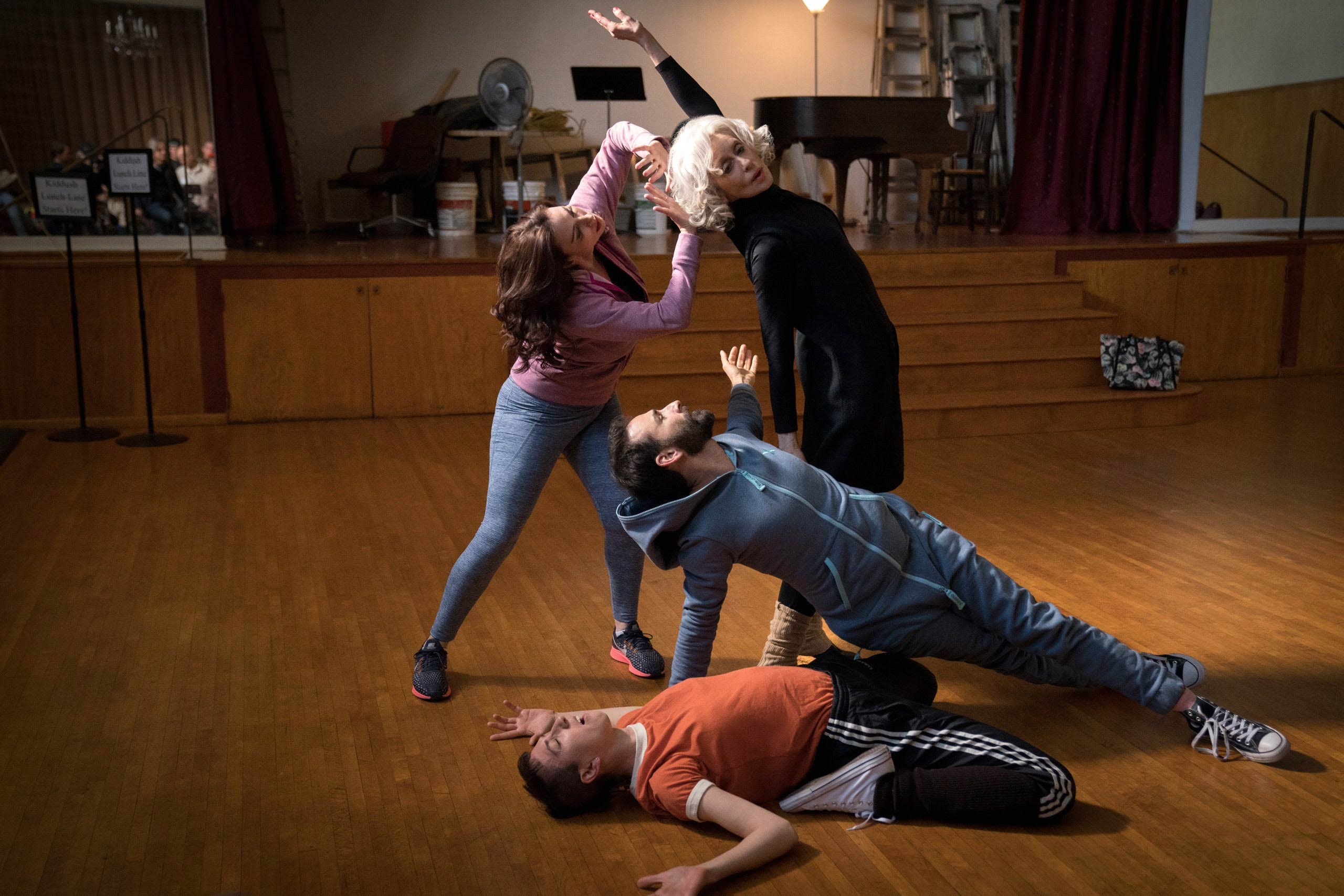 ERIK LIBERMAN, LESLI MARGHERITA, JUDITH LIGHT AND JO LAMPERT IN ‘TRANSPARENT: MUSICALE FINALE’. PHOTO BY NICOLE WILDER
ERIK LIBERMAN, LESLI MARGHERITA, JUDITH LIGHT AND JO LAMPERT IN ‘TRANSPARENT: MUSICALE FINALE’. PHOTO BY NICOLE WILDER
You appeared in the unexpected musical finale of Amazon’s ground-breaking series ‘Transparent’. What attracted you to this show?
From the moment I saw ‘Transparent’, I thought, ‘This is a show I have to be on because this is addressing something I haven’t seen before.’ At the same time, I thought, ‘I’ll never be on that show because Jay Duplass already is and we sort of cancel each other out visually [laughs].’ But something inside me knew that I had to be on it – just like when I was a kid – and I kept saying, ‘I’m going to be on “Transparent”’ and people would ask, ‘When?’ and I’d say, ‘Don’t know, but soon!’ [laughs]
In the end, it all came together magically. I met Faith Soloway, the composer and a producer on the show, at a concert of her work at Joe’s Pub in New York. We kept in touch and eventually, she asked if I’d be interested in participating in the workshop of a Transparent musical. We weren’t sure if it would make it to the stage or screen but blessedly, it did.
In April 2018, we played musical versions of the Pfeffermans in a concert at Joe’s Pub. Then, in early 2019, we shot the finale. Judith Light’s character casts us as doppelgangers of her kids, which helps heal her relationship with her actual kids… It was very ‘meta’!
Like holding a mirror up to nature.
Yes! Exactly.
Jay [Duplass] was so wonderful in that — and I was very sensitive to him, because I didn’t want to step on his toes in any way. But he could not have been more magnanimous. For a moment, though, it did feel like the Sharks and the Jets during ‘West Side Story’ rehearsals, when Jerome Robbins didn’t want them to talk to each other so there was tension in the air! In our case, I think that led to a lot of comedy.
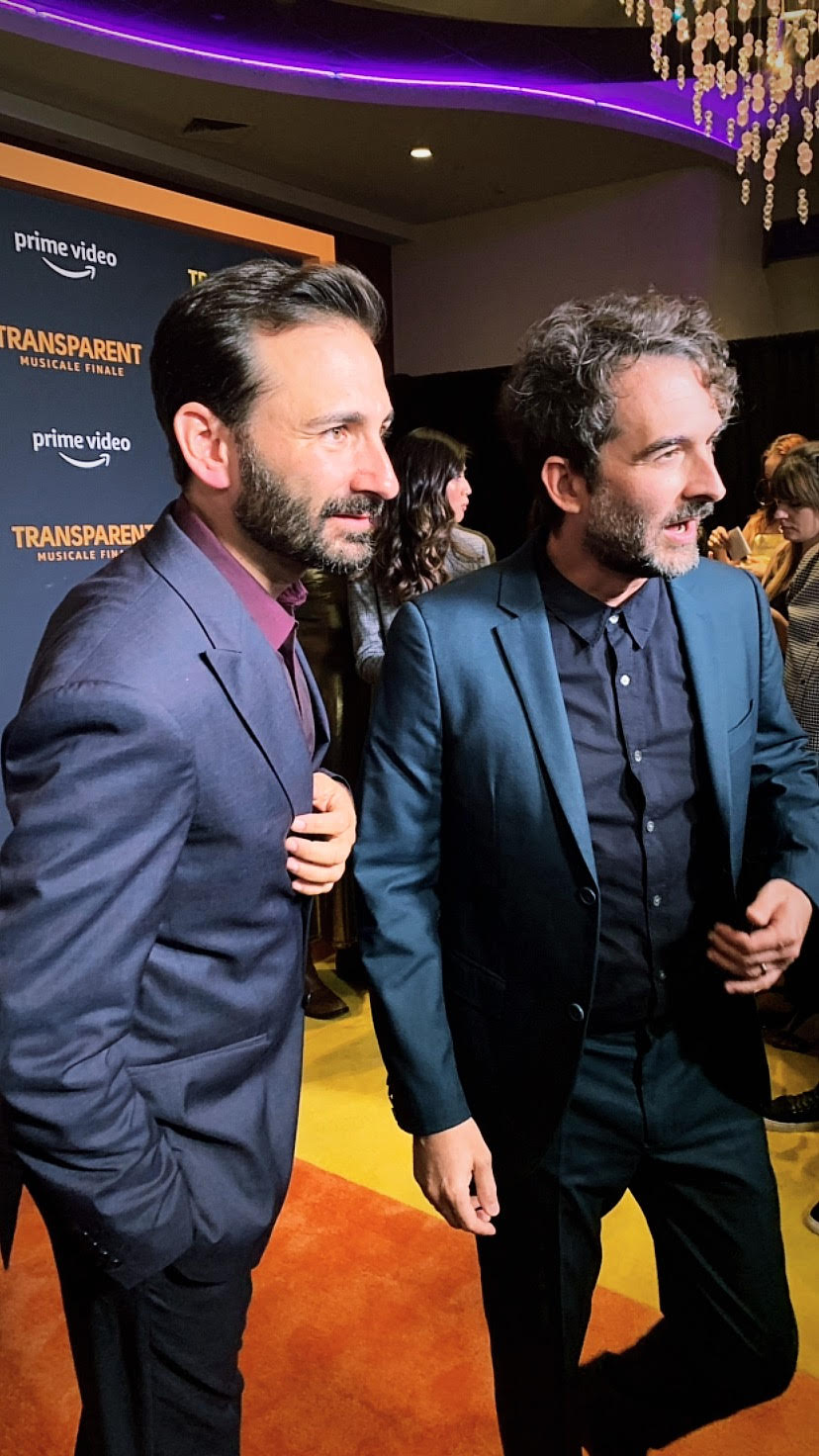 ERIK LIBERMAN AND JAY DUPLASS TRANSPARENT LOS ANGELES PREMIERE PHOTO BY JEREMY BOROS
ERIK LIBERMAN AND JAY DUPLASS TRANSPARENT LOS ANGELES PREMIERE PHOTO BY JEREMY BOROS
You recently launched Bridge to Broadway, an online training platform connecting young professionals with Broadway mentors. Can you tell me more about the initiative?
They say, ‘Necessity is the mother of invention’ and that was very much the case! Bridge to Broadway was sparked by a need to pivot in the face of the pandemic, which we thought would last a week or two. I had concerts and classes scheduled in New York, all of which were cancelled, so I reached out to a few friends and asked, ‘Do you want to teach?’ Then we realized that this was going to last longer than any of us expected and the program grew from there.
We offered the first 48 classes as ‘pay what you can, if you can,’ and began donating a portion of proceeds to The Actors Fund and Black Lives Matter… The most powerful thing I’ve observed over the last four months is the sense of global citizenship that has emerged as a result of these exchanges. There are students who wake up in the dead of night from all over the world to meet their mentors — and for most participants, they’ve never had face-to-face contact with artists like these before. It’s been a joy to facilitate.
Are you currently working on any projects that we should be on the lookout for?
I’ve spent much of the last two years writing a pilot and a book and am now producing a documentary.
The spiritual density of everything happening right now can sometimes just force me – and I don’t think I’m alone in this – into submission. And then I come out and say, ‘Hey, wait a moment, you’ve got something to offer.’
“The planet has been brought to its knees in a way. I feel that this inability to go out and shine as performers onstage and on set forces us to shine as human beings in real life and ask ourselves, ‘Why am I here?’ — then align with that deeper mission.”
Bridge to Broadway has been a real lifesaver because it’s a place to show up every day and engage in larger conversations — and a lot of opportunities have sprung from that.
It feels like a new world right now, or maybe it’s the same world with a lot of buried truths coming to light. Either way, the narrative is being rewritten and appropriately so.
Perhaps, similarly to what you did with ‘Transparent,’ this pandemic is raising a mirror.
I think that’s perfectly put.
It’s all a mirror that allows us to ask, ‘How can I be of service?’ When I coach someone, the first thing I ask is, ‘How can I best support you?’ because I really don’t know. I don’t know if any of us knows what it truly means to support each other — but maybe, finally, we’ve become humble enough to ask.
The planet has been brought to its knees in a way. I feel that this inability to go out and shine as performers on stage and set forces us to shine as human beings in real life and ask ourselves, ‘Why am I here?’ — then align with that deeper mission.
Stella Lungu
Stella is the Editor-in-Chief of The Cinematic Journal. She is also the Managing Director of Wolkh, a PR, Marketing and Branding agency specializing in Film, TV, Interactive Entertainment and Performing Arts.
An Interview with Anna Drubich
Anna Drubich is a Russian-born composer of both concert and film music, and has studied across…
A Conversation with Adam Janota Bzowski
Adam Janota Bzowski is a London-based composer and sound designer who has been working in film and…
Interview: Rebekka Karijord on the Process of Scoring Songs of Earth
Songs of Earth is Margreth Olin’s critically acclaimed nature documentary which is both an intimate…
Don't miss out
Cinematic stories delivered straight to your inbox.
Ridiculously Effective PR & Marketing
Wolkh is a full-service creative agency specialising in PR, Marketing and Branding for Film, TV, Interactive Entertainment and Performing Arts.
